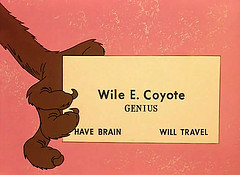

Getting past ‘paralysis by analysis’
Have you ever been involved in making a decision that contained huge helpings of complexity and uncertainty, we have all been there – whether in our personal life or at work.
It can be quite debilitating, paralysis by analysis is phrase you tend to hear, there comes a point where any more thinking is counter-productive and you need to start making some progress. You will have already decided what the goal is, the issues are in the detail, this is where paralysis starts.
Experience shows that a combination of emotions and schools of thought tend to kick in, some include fear, the unknown, past ways of doing things (just because we’ve done it that way doesn’t make it right) and bias towards a particular way of doing something or using a particular supplier.
I’ve always found it unusual that the way we behave, the way we conduct ourselves and the values we believe in – differ when at home and when at work. Okay I’m not saying that you should convene a meeting with you family and set an agenda with a minute takers to plan your annual holiday or what you are doing over bank holiday weekend. what I’m getting at is – the general ethos of how we make decisions. In our personal life we just let things flow, where as at work we are driven to be productive – we either initiate or are involved in change all the time.
Most of us, in our personal life, have things done to us, we sit back as spectators – usually letting the most vocal or elderly member of our family set the plans for the future. Sometimes the day to day activities take over our lives, month go by even years before we realise “what have I achieved”. We may need to pause and reflect what we want to do. Would it hurt if we produced a plan for the next 12 months with our partners and family – you might surprise yourself on what you agree on and accomplish.
Watching the Winter Olympics this weekend, I was impressed with the “snow leopard”. This is Ghana’s only competitor, ‘Snow Leopard’ Kwame Nkrumah-Acheampong made his Olympic debut on Saturday in the men’s slalom. I thought it’s a bit like the film ‘Cool Running’s -where the Jamaican Bobslay team competed in international sport.
While Kwame was being interviewed by the BBC, there was a couple of things that stood out from me. He’d only been skiing for five years, born in Glasgow and trained at the Milton Keynes indoor ski centre – he decided he wanted to complete at the Vancouver 2010 Olympic games, a lot of planning and tough decisions got him where he is today. He’d thanked all the sponsors but still had to sleep in his van due to the high prices of hotels. He is quite an incredible guy, and an example of how the perceived impossible can be possible. His target is not to finish last but second from bottom – we all wish him the best of luck.
As saying goes, if you don’t know where you’re going you’ll always get there. Whether goals are set by you or others – they will contain elements of complexity and uncertainty that will need addressing.
Structured decision-making has always been an area that has intrigued me. Lots of models exist, some quite detailed and others quite obvious. One I’d like to share with you which I’ve used in the past with great results is below.
This approach works well when the discussion is more of an adversarial nature. If you are not at this point consider running a session that is purely inquisitorial or problem-solving and then come back to this.
Initially start by agreeing – with all – the format of how we get to the final decision, initially focusing on the ‘what’ and later looking at the ‘how’:
- Why are we doing this? What are the goals? What are the success criteria?
- To make this happen what are the ingredients we need to agree upon?
- Has the underlying burden of the ingredients been investigated by all parties?
- What are the relevant facts, that are not in dispute? Park these and resist going over them again – this will prevent paralysis.
- What relevant facts are in dispute? Be clear and get consensus that they are in dispute.
- Have we heard all the arguments of all the items in dispute? This will prevent going over old-ground.
- Which arguments are reliable and are certain? From this the obvious approach will become apparent. Please note: Doing nothing is always an option.
As the lead – personally try and not get into the detail as this will distract the flow and you may end up going around in circles.
Change happens around us all the time, we have a choice to go with the flow or make a difference and get involved.
Photo credit: marsmet523 / Foter / Creative Commons Attribution-NonCommercial-ShareAlike 2.0 Generic (CC BY-NC-SA 2.0)
